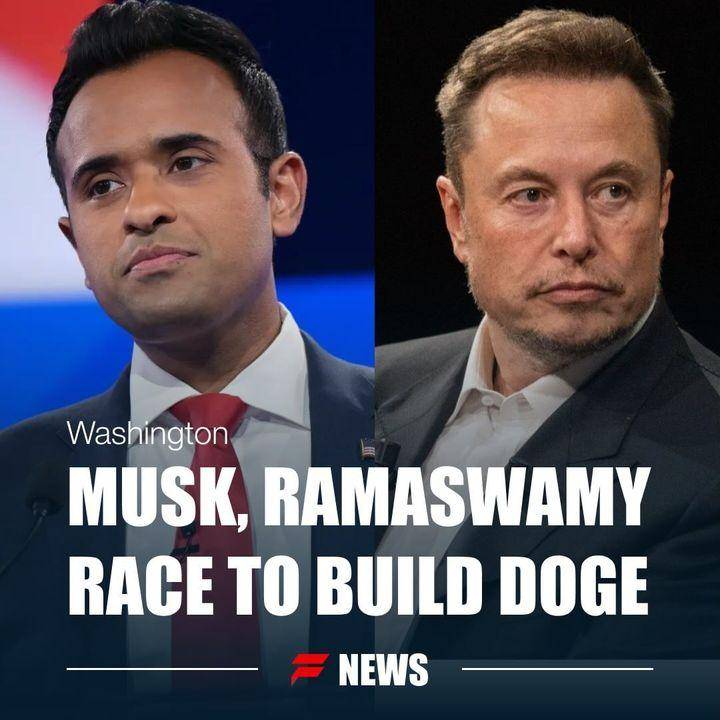Elon Musk, Vivek Ramaswamy, and DOGE: Ambitious Plans to Transform U.S. Government Spending.
In recent months, the world has witnessed intriguing developments regarding U.S. government spending, particularly involving two high-profile entrepreneurs: Elon Musk and Vivek Ramaswamy. Both are set to take on significant roles in a newly-formed advisory department known as the Department of Government Efficiency (DOGE). The creation of DOGE comes after President-elect Donald Trump’s November 12 announcement that Musk and Ramaswamy will head this department, designed to slash government costs and streamline federal operations.
The Mission Behind DOGE.
DOGE aims to serve as an advisory department working closely with the White House’s Office of Management and Budget (OMB). The OMB has traditionally assisted presidents in shaping budget proposals and managing the federal bureaucracy. However, DOGE’s objective is to go beyond advising—it seeks to make significant cuts to the federal budget and workforce. Musk has publicly committed to reducing U.S. government spending by $2 trillion, representing over a third of the annual budget. His plan involves consolidating federal agencies from 428 to just 99.
This bold move has sparked conversations about feasibility and expertise. Critics, including former government officials, have raised concerns that while Musk’s success in the business world is unquestioned, navigating the complexities of federal bureaucracy presents a different challenge.
Musk and Ramaswamy’s Strategy: Schedule F.
To implement these ambitious cuts, Musk and Ramaswamy are relying on a controversial policy called Schedule F. This executive order, initially signed by Trump during his first term but never enacted, sought to reclassify thousands of federal civil servants as “at-will†employees. This classification would allow the President to dismiss them without standard protections, a move that aligns with DOGE’s goal of trimming the federal workforce.
Ramaswamy, despite not clinching the Republican presidential nomination, has remained a staunch advocate for drastic government reform. He supports cutting 75% of the federal workforce, which would be possible under the Schedule F classification. According to proponents, this policy would enable the federal government to operate with greater efficiency by removing bureaucratic red tape.
Challenges and Skepticism.
While the vision behind DOGE is clear, achieving it faces significant hurdles. Any efforts to establish DOGE as an official cabinet position would require congressional approval, a complex process in Washington. Furthermore, Musk’s confidence in slashing agencies has raised eyebrows, with some critics calling it overconfident and impractical.
In a landscape where public and media scrutiny is intense, the outcomes of Musk and Ramaswamy's endeavors with DOGE remain uncertain. Yet, one thing is clear: their plans have already captured widespread attention, sparking debates about the future of U.S. government efficiency and spending. Whether or not they succeed, the creation of DOGE marks a significant moment in American political discourse, drawing readers and analysts eager to see what unfolds next.



No comments yet
Be the first to share your thoughts!